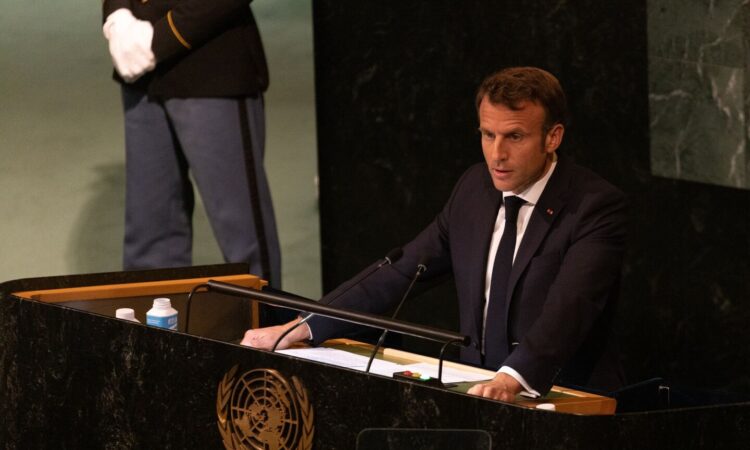
Europe and NATO clearly want to do more to help Ukraine. US Defense Secretary Lloyd Austin, speaking after a meeting of more than 50 NATO allies, said he had “confidence” that countries would be offering whatever they could to bolster Kyiv’s air defenses. The Dutch have pledged €15 million worth of anti-aircraft missiles.
Yet Ukraine’s plea is inadvertently exposing the challenges and tradeoffs involved as defense budgets flip from famine to feast after the multi-decade “peace dividend” of the post-Cold War era.
More than seven months into Putin’s war, we’ve already learned that announcements of more defense spending around Europe have yet to fully become reality. The weapons sent to Ukraine so far have been sourced from existing stockpiles, and the political will to deplete resources in one area to bolster Ukraine hasn’t always been there — especially when the equipment is in disrepair.
The ability to replenish stockpiles is a challenge that depends a lot on supply chains. Lockheed Martin Corp. said in May that doubling the production capacity of its Javelin missiles, for example, could take years. Alessandro Profumo, chief executive officer of Italy’s Leonardo SpA, this week warned of the industrial challenges ahead: more intensive use of existing systems and the ability to replace them at a faster rate, all while developing next-generation technology to disrupt them.
And now the backdrop of recession in the EU and UK, requiring governments to dig deep into the public purse to protect consumers from inflation, is casting a shadow on future defense commitments. Declines in the pound and euro against the US dollar make buying equipment from the US more expensive and spending targets harder to reach (even if domestic exporters eventually benefit); deteriorating growth forecasts mean government budgets become more stretched.
The UK’s recent budget turmoil is a case in point. Instead of choosing between guns and butter, the ruling Tories have promised it all, from pledging to spend 3% of gross domestic product on defense by 2030 — or about £157 billion over the next eight years, according to think tank Royal United Services Institute — to energy aid and a slew of unfunded tax cuts. Squaring all this with a downbeat growth outlook may require unpopular spending cuts about double the size of the defense budget, reckons the Institute for Fiscal Studies.
Constraints that are obvious today in the UK might be evident elsewhere tomorrow. Bloomberg Economics estimates that for the Group of Seven major industrialized nations as a whole, debt servicing costs could rise to 3.6% of GDP by 2030 from 1.7% in 2019. Faced with these challenges, some clear paths would make sense to pursue. The first is to prioritize support for Ukraine. Economist Jacob Nell, in a co-authored paper published last month, says Ukraine’s armed forces have been effective in destroying a large volume of Russian military equipment and capability at a low cost. Committing to provide an extra $50 billion for 2023 would fully finance Ukraine’s 2023 budget and could be done using International Monetary Fund special drawing rights, alleviating the strain on Western budgets.The second is to be more realistic. The long list of European post-pandemic spending items includes public health and climate change — and points to tax increases, not cuts. The UK’s political ambition of being an Indo-Pacific power while also defending Ukraine is stretching economic reality — perhaps “Global Britain” would be better off focusing on European Britain for now.
And efficiency gains should also be pursued. The glass-half-full view of this crisis is that the EU pursues closer defense integration as a result, according to Lucie Béraud-Sudreau, of the Stockholm International Peace Research Institute. NATO could also improve coordination.
Tough decisions are approaching for European governments. Gainsbourg’s bittersweet music is a sign of things to come.
This column does not necessarily reflect the opinion of the editorial board or Bloomberg LP and its owners.
Lionel Laurent is a Bloomberg Opinion columnist covering digital currencies, the European Union and France. Previously, he was a reporter for Reuters and Forbes.
More stories like this are available on bloomberg.com/opinion



